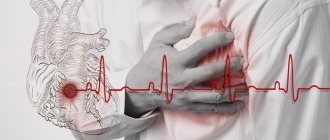Consultation via Skype or WhatsApp is available.
Fear of death is a natural reaction of the psyche, which underlies self-preservation. This feeling is inherent in absolutely all living beings. We value life because we understand that we are mortal. It is the fear of dying that makes a person more attentive and careful. This avoids taking unreasonable risks.
But sometimes this feeling becomes so strong that it does not help, but hinders life. In this case, it is customary to talk about a pathological condition - thanatophobia. It is based on a panicky fear of death, which arises for no reason, mainly at a young age.
A person is tormented by obsessive thoughts about inevitable death. He stops going outside because it is dangerous there. Any discomfort in the body is perceived as a symptom of a serious illness. Mentions of funerals, cemeteries, and ghosts lead to a panic attack. The meaning of life is lost, which leads to loneliness and the development of depression.
Fear of death also occurs in people who suffer from panic attacks or neuroses. This condition requires treatment from a psychotherapist or psychiatrist.
Definition of the concept
What is thanatophobia? Thanatophobia in psychology is a strong fear of death. And you can’t argue with the fact that this is the most acute experience in a person’s life. It affects everyone differently. For some, it is motivation for constant movement forward, an active life position. For others, it is a serious illness with the most serious consequences. In most cases, while solving pressing problems and the frantic pace of life, we simply “forget” to think about death.
Thanatophobia occurs when people feel their life or social status is threatened. Often the fear of death is a consequence of deep thoughts about the meaning of life and existence, the correct choice of the field of activity (creative and professional crisis).
It is interesting that Sigmund Freud spoke about thanatophobia. According to him, there are two opposing forces inside a person: the creative love of Eros and the destructive force of Thanatos. There is always an irreconcilable war between them, which leads to the development of a feeling of fear of death.
Realizing his mortality, a person experiences unprecedented anxiety. He, of course, tries to drive these thoughts away from himself. In this he is helped by a psychological defense mechanism that hides thoughts about death either in the subconscious, or even deeper - in the area of the unconscious.
According to psychologists, pathological fear of death is a difficult to treat disease. The patient is always afraid of dying, every minute. Even when there is no visible threat or danger to his life. The most unpleasant thing is that it is not a passive phobia. It manifests itself in obsessive anticipation of death, depression and other unpleasant symptoms. Sometimes a person does not even understand what caused this condition.
Psychologists distinguish 4 levels of obsessive fear of death:
- Somatic. A person is afraid of physical suffering. He worries about what will happen to the body after he dies.
- Personal. Here it is important for the patient to know what will happen to his consciousness. He is afraid of losing control over himself, being left alone, becoming an inferior and insolvent person.
- Social. At this level, the individual is afraid of the death of loved ones. He doesn't want to lose the relationship he has now.
- Spiritual. People are afraid of the unknown, of what will happen to their soul. They are afraid of disappearing without a trace, possible retribution for their earthly actions, etc.
Interestingly, type 4 thanatophobia most often occurs if a person has a low level of depression, hysteria and other similar disorders. The second is typical for those who are not confident in themselves and their abilities, and suffer from excessive anxiety. Such people find it difficult to cope with the fear of death. It takes hold of them so much that they can no longer lead a full, joyful life. Moreover, their consciousness is paralyzed, so they cannot make quick and effective decisions in critical situations. Over time, the power of thanatophobia becomes stronger and stronger.
The strong fear of death is ambiguous in itself. Some thanatophobes are afraid of the unknown that awaits them after they die. For others, the worst thing is the last days, the suffering before death. It is especially difficult for those who believe in religious teachings about heavenly punishment and inevitable punishment for sins.
The path to salvation
Alarmists know very well that any serious work should begin with admitting to yourself: I am really sick and need help. There are neurotics who, with the help of yoga, meditation, correction
lifestyle and self-hypnosis achieves incredible results and alleviates his condition. However, without finding the true causes of thanatophobia, it is useless to do anything. You can push the problem aside by hiding it behind a thick screen of your own beliefs (“I can handle it, I understand everything”), but true experts in psychology and psychiatry know: even an experienced psychotherapist will never be able to help himself, but will go to another specialist.
A psychiatrist and pathopsychologist will be needed. First, the severity of thanatophobia will be determined, after which the patient’s personal and mental characteristics will be analyzed. Only then will a treatment program be proposed. Medications are usually prescribed for advanced forms of mental disorder, and treatment is necessarily accompanied by psychotherapeutic work.
We recommend that you read: What is social phobia: main signs and methods of treatment
The specialist helps the patient return to the situations that gave rise to the phobia, relive them and change his attitude towards himself and his life.
Symptoms of thanatophobia
Conventionally, symptoms of fear of sudden death are divided into 3 groups:
- Physiological. These include: trembling in the arms and legs, arrhythmia, rapid breathing, nausea, excessive sweating, chills or fever, disturbances in the functioning of the gastrointestinal tract and even problems in the sexual sphere.
- Mental. We are talking about panic attacks that are almost impossible to control, loss of a sense of reality, depression, and problems with sleep. The patient reacts violently and sometimes inappropriately to the mention of what he is afraid of.
- Emotional. This is increased anxiety, constant tension, unmotivated aggression. Man always avoids talking about death.
Another problem is inhibition of personality development. In particularly serious cases, patients deteriorate.
Separately, it is worth mentioning the symptoms of thanatophobia in creative people. They are very worried about what they will leave behind. Because of this, they are simply obsessed with some super ideas. They become selfish, stubborn, and unresponsive to criticism and the opinions of others. In their thoughts only imminent death.
A severe form of thanatophobia also has its own symptoms:
- Almost complete refusal to communicate with family and friends. Limiting your social circle.
- Loss of efficiency, goals, guidelines, meaning of life.
- Disturbance in the functioning of internal organs and systems.
- The desire to overcome the fear of death with the help of alcoholic beverages or drugs.
- Insomnia, interrupted sleep with frequent nightmares.
Most thanatophobes are lonely. This happens because they withdraw into themselves, behave aggressively and irritably.
Modern methods of treatment
You can overcome your phobias only by recognizing the existence of a problem and seeking help from specialists - a psychiatrist or psychotherapist.
The basis of treatment is cognitive behavioral therapy, medication, other types of psychotherapy, and the use of hypnosis. In the early stages, you can cope on your own under the guidance of a professional; in later stages, you need the constant help of a doctor.
You can also additionally use:
- communication with loved ones, conversations;
- physical activity, staying in the fresh air;
- proper nutrition without psychostimulants;
- rejection of bad habits.
Causes of fear of death
There is no exact answer to the question of what causes the development of fear of death or thanatophobia. The patient cannot say at what exact moment this oppressive feeling arises. Each situation is individual.
And yet, psychiatrists have identified a number of factors that provoke the appearance of thanatophobia:
- Believers often suffer from this fear. Many religions have teachings about the afterlife, where a person will inevitably face punishment, retribution for all his earthly deeds. Deviation from religious canons is especially severely punished. In this case, it turns out that the fear of death is replaced by the fear of punishment.
- Thanatophobia is the result of fear of the unknown. In most cases, educated people with a high level of intelligence encounter it. They try to understand the essence of death, but they fail. Hence the increased anxiety.
- Another reason for the development of fear of death is a personal crisis. A person analyzes the years he has lived and realizes that he has achieved little of what he planned. Because of this, he is afraid that death will disrupt all his future plans and will not allow him to carry out his plans.
- Those who are accustomed to controlling every area of their life are also very afraid of death. These are overly disciplined, pedantic people. They are afraid that they will have no control over the dying process. They fear both sudden death and aging, as well as what will happen in the so-called afterlife.
- Thanatophobia also develops in cases where a person experiences a serious illness and death of close relatives and friends. Such a tragic personal experience leads to a change in values and priorities. The individual begins to feel differently about life and everything that happens in it. He gets satisfaction from it, but at the same time understands that it can end suddenly. Trying to avoid death, thanatophobes do everything in their power to prolong life. They try to protect themselves from diseases, take care of their health, and lead a healthy lifestyle. And often this behavior turns into pathology.
- The fear of death often arises in overly emotional people. They are easily unsettled by news about any disasters, cataclysms, etc. They vividly imagine these events, as a result of which thanatophobia develops. Some experts believe that the fear of sudden death is the result of zombification, which is successfully carried out by the media. Viewers absorb information about wars and criminal incidents. Some people perceive it normally. A suspicious and overly sensitive person passes it through himself so deeply that he succumbs to the so-called “social hypnosis” and becomes nervous and irritable.
There is another version of why the fear of death appears. Some psychologists believe that this is a completely normal phenomenon that occurs in the process of growth and development of each individual without exception. The only question is what the person will do next. Awareness of mortality confronts him with a choice: to move on or to stop developing and degrade. The first option automatically triggers reflections on the meaning of life and existence.
Types of taphophobia
There are several subtypes of taphophobia. Let's look at each in more detail.
Fear of being buried alive
Taphophobia most often refers to this very fear - the fear of being buried alive (taphephobia). It is based on the instinct of self-preservation, the fear of being immobilized, without food, water and access to air.
It is important to understand that all stories about being buried alive go back a long way. Then medicine was not as developed as it is now, there were no morgues
Fainting, coma and other borderline conditions could be mistaken for death. But this does not stop taphophobes, and modern films with similar plots frighten impressionable citizens even more.
Fear of funerals, cemeteries and coffins
Fear of the process of funerals and cemeteries (coimetrophobia), fear of coffins can be associated with memories of someone's death. And also the fear of going to funerals and visiting cemeteries affects superstitious people. Some are afraid of the rising of the dead, some of their own death, some of the departure of a loved one, and some of burial.
Fear of the hearse
A hearse is another attribute of a funeral. This is a machine that sends a person on his final journey. In this case, fear is associated with both the fear of death and the fear of the unknown. Particularly sophisticated taphophobes may imagine that they were still alive in a coffin and were being transported in a hearse, and that it got into an accident.
Fear of suffering from illness
Some people are afraid not so much of death itself as of pain and death in agony. The reason for such fear should be sought in the past. The patient probably witnessed how his loved one died.
Fear of death
Thanatophobia, or fear of death, is the basis of taphophobia. This is an exaggerated instinct of self-preservation, which manifests itself after a person has witnessed someone’s death or because a person is frightened by ignorance, the unknown. We will talk more about this fear in another article.
Sopor
The first cases of lethargic sleep were described several centuries ago. In this state, a person’s body temperature decreases, breathing becomes invisible, and the heartbeat decreases to a minimum. According to research results, people who have been subjected to extreme stress, psychophysically and emotionally exhausted individuals can fall into lethargic sleep. This can also happen with severe intoxication, alcohol poisoning, or head injury. Patients with this type of phobia are tormented by the fear of waking up in a coffin.
How to get rid of the fear of death
How to overcome the fear of death? First you need to realize that it is impossible to completely get rid of it. It will always be present in your subconscious. The only question is how strongly it will manifest itself.
Treatment of thanatophobia should be comprehensive and include medication and psychotherapy.
Taking medications
This is an effective way to get rid of obsessive bad thoughts with thanatophobia. But the doctor prescribes medications only in severe cases. It is important to combine them with psychotherapeutic treatment methods, the main goal of which is to find the cause of the disease, get rid of destructive attitudes and create a new model of behavior.
Medications used to treat thanatophobia include:
- antidepressants;
- beta blockers;
- neuroleptics.
They help reduce the severity of symptoms of the disease, reduce the number of panic attacks and neuroses.
Psychotherapy
How to deal with thanatophobia using psychotherapy? To help a patient overcome the fear of death, psychologists use the following techniques:
- confrontation;
- internal energy management;
- stimulation of adrenaline production;
- hypnosis;
- desensitization;
- neurolinguistic programming.
What do the listed methods of treatment provide? First, they help change the thinking of a thanatophobe. Secondly, they teach him to cope with stressful situations. And thirdly, they teach him techniques for relaxation, self-control, and maintaining clear thinking even in critical situations. The program for each patient is selected individually.
Hypnosis has proven itself well. Compared to other techniques, it has a number of advantages:
- safety;
- no discomfort for the patient;
- painlessness.
With each session, the severity of thanatophobia symptoms decreases. A person not only gets rid of depression, obsessive fear of dying, and anxiety. He receives motivation for further movement, self-development, and the implementation of some plans and ideas. In addition, recovery processes are launched in his body. The functioning of the heart and blood vessels improves.
Independent work - advice from psychologists
Is it possible to cope with the fear of death on your own? It is possible, but only if independent work is part of a comprehensive treatment.
So, you need to understand and accept several important truths:
- Everything in life is cyclical. People are born, live for a certain period of time and die. Remember what Woland said from Bulgakov’s “The Master and Margarita”: “Man is not just mortal, he is sometimes suddenly mortal.” And here we cannot change anything. It is simply impossible to protect yourself 100% from unforeseen situations.
- Relatives and friends always remember the deceased. Fear of the unknown, lack of legacy for descendants, and uselessness is one of the reasons for the development of thanatophobia. Considering this fact, fill your life with good deeds, which in turn will give it meaning. This will help you take your mind off painful thoughts.
- Remember that holding back your emotions will not lead to anything good. So talk about your fears with those you trust. Don't underestimate the support of loved ones.
- The fear of death paralyzes, deprives you of a full life, joy and pleasure. Therefore, learn to leave your comfort zone. Develop, learn, do something new. If possible, go on a trip. An alternative is walking around your hometown alone or with friends. Use life to the fullest.
- Remember that thoughts are material. Negativity sets you up for self-destruction. Fight him. This does not mean that you should constantly be in a state of euphoria and delight. Enjoy every moment of life. Be confident in yourself and your abilities. This will help not only reduce the fear of death, but also get rid of it forever.
Also, to combat thanatophobia, psychologists recommend deciding on a worldview. A clear position in life will help you form your own special view of death. You will understand its nature and inevitability, but it will not frighten you. On the contrary, you will do everything to live your life with dignity.
How to overcome the fear of death of loved ones
Like thanatophobia, it cannot be completely eliminated. Yes, and it is not necessary until it turns into an obsession.
Don't get depressed. If a person close to you is seriously ill, your negative emotions will make things worse for both you and him. Therefore, it is better to concentrate on improving his life. Enjoy every minute spent with your loved ones.
Remember that, unfortunately, we cannot control some processes.
Consequences and danger of neglected phobia
Constant tension leads to depression. With low stress tolerance, in just two days the phobia can reach a dangerous stage. A person goes from a state of mild anxiety to a state of deep depression and intense anxiety.
The patient is tormented by the fear of falling asleep and not waking up, as well as the fear that no one will help. This is how the fear of loneliness is born, which in this case is a consequence of the fear of death. In advanced stages, the patient can only fall asleep in the presence of someone. These measures, like sleeping in an unnatural position, are aimed at reducing anxiety and creating a feeling of security. However, the opposite effect is achieved: anxiety increases, the patient creates additional problems for himself and other people.
It is important! Obsessive thoughts and actions prevent a person from working, living, and building family relationships. Chronic sleep deprivation leads to complications: hallucinations, neuroses, nervous breakdowns, blindness, paranoia
Without treatment, the taphophobe's condition will constantly worsen.
Interesting fact
It was said above that the fear of death is a completely normal phenomenon. But some people don't have it. And this is a pathology. These people include:
- those who lack empathy;
- those who do not know how to empathize at all;
- those who have clearly expressed misanthropy (hatred of others);
- persons who lack the instinct of self-preservation have a greatly reduced sense of danger;
- persons with a tendency toward sadism or criminal tendencies.
Such individuals do not enjoy communication. They also often have reduced sensitivity to pain.











